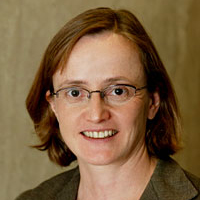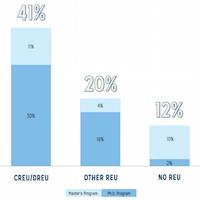CS in DC: Margaret Martonosi, Jefferson Science Fellow, U.S. Department of State
 CRA board member Margaret Martonosi is currently serving as a Jefferson Science Fellow (JSF) within the U.S. State Department while on sabbatical from Princeton University for the 2015-2016 academic year. Within the State Department, she works in the Bureau of Economic and Business Affairs’ Office of International Communications and Information Policy (CIP). CIP is responsible for the formulation, coordination, and oversight of U.S. foreign policy related to information and communications technology (ICT).
CRA board member Margaret Martonosi is currently serving as a Jefferson Science Fellow (JSF) within the U.S. State Department while on sabbatical from Princeton University for the 2015-2016 academic year. Within the State Department, she works in the Bureau of Economic and Business Affairs’ Office of International Communications and Information Policy (CIP). CIP is responsible for the formulation, coordination, and oversight of U.S. foreign policy related to information and communications technology (ICT).
What do you do in your current position?
As a JSF, my goal is to bring technology expertise and insights to a range of computing-related policy issues of current interest to CIP. My focus has particularly included technical and policy issues related to the Internet of Things (IoT) and Smart Cities, as well as initiatives to increase the world population’s ability to effectively and affordably access the Internet. For example, along with colleagues, we are formulating technically sound strategies for where and how to address issues of standardization, spectrum allocation, and regulation for IoT applications. My work also has me participating frequently in U.S. interagency discussions on computing policy including USAID, Department of Commerce, and FCC, and with multilateral organizations such as the UN’s International Telecommunications Union (ITU).
What do you hope to accomplish in your time in D.C.?
I have been at State for five months now, so I now have a pretty good sense of how to be operationally useful there from day to day. I contribute to writing and editing pieces that formulate policy or that convey it in different forums. As a CS person, I use my technical knowledge to make sure that claims and issues are portrayed in ways that are technically accurate, and that clearly convey the right policy ramifications behind them. I contribute to U.S. prep processes for meetings at the ITU, OECD, and elsewhere.
In addition to the day-to-day usefulness, I also hope to have some more long-term impact on how State and CIP view the issues I have worked on. For IoT, connectivity, or other ICT issues, our goal is to articulate a set of U.S. positions clearly, so that the State Department speaks with a unified voice about its role in economic diplomacy, in bilateral relationships with particular countries, and in how we convey our beliefs at multilateral meetings.
How did you find out about the opportunity and how were you chosen?
I heard about it through colleagues who had previously been JSFs. The program and its application process is administered by the National Academies, as described here: http://sites.nationalacademies.org/PGA/Jefferson/
How can the computing community participate in your work?
I have given a couple short talks about it at Computing Community Consortium and CRA meetings. I am happy to chat with people who are interested in hearing more.
What are your thoughts on the experience so far?
When I originally decided to apply, I just hoped to do something different and interesting for the year. Now that I am five months into the experience, I am happy to say that not only did I get something different and interesting, but also educational and fun. The people I work with are very skilled and dedicated, and I am learning a lot about how tech policy plays a role in the operations of the State Department and of our government overall.
As part of CRA’s mission to help the computing research community become more engaged in policymaking and programmatic roles in D.C., we’ve embarked on a new effort to highlight the work of members of the computing research community who have taken the plunge and are serving the nation in policymaking roles. This new column will provide these policymaking researchers with an opportunity to highlight work that the community should know about, as well as raise awareness of the types of opportunities that are available to those interested in serving.








